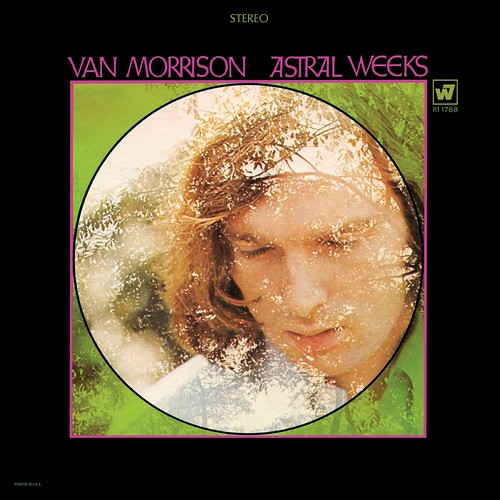 The title of this blog post is actually the subtitle of this book. The actual title, Astral Weeks, probably wouldn't have intrigued you, snagged your attention, unless you were a huge fan of musician Van Morrison's early work.
The title of this blog post is actually the subtitle of this book. The actual title, Astral Weeks, probably wouldn't have intrigued you, snagged your attention, unless you were a huge fan of musician Van Morrison's early work.Published just this past year in hardcover (357 pages) by Penguin Press, Astral Weeks: A Secret History of 1968 may be one of the most mind-boggling, and weird, books I've read in quite some time.
may be one of the most mind-boggling, and weird, books I've read in quite some time.
All the events of note take place in 1968 in and around the city of Boston. I spent some time back in the day in Boston and its surrounds: used to hang out in Harvard Square; ate regularly at a grinder shop in Kenmore Square, while watching all the addicts (in the shop!) nod off; when I couldn't snag a bed at the only youth hostel in town, I would kill time all night in a Dunkin' Donuts, buzzing out on coffee after coffee, until the city came awake in the early morn. Made many a hike from Beacon Street across the Mass Ave Bridge -- and back again -- just because....
Some of the "characters" in this book include Jim Kweskin, of the Jug Band fame, who gave up the band for a place in Mel Lyman's Fort Hill Community (aka commune) in Roxbury. Did you know that Lou Reed and the Velvet Underground, though from New York, played the Boston Tea Party (music venue) a total of 43 times between 1967 and 1970? The VU cited the Tea Party as their favorite place to play in the whole country! Others in the book include Jonathan Richman (of the Modern Lovers fame) and, of course, Van Morrison, who, at the time, was living in Boston to avoid certain Mafia connections to his music label in New York!
In fact, it was the Velvet Underground who taught Jonathan Richman to play guitar, as detailed in this excerpt:
"Jonathan, can you make this curve with your ring finger? VU guitarist Sterling Morrison asked Jonathan Richman.Richman had brought his bingo-prize guitar to the Tea Party and lingered in a corner of the dressing room until members of the band offered him something in the way of lessons. "They physically taught me how to play," he recounted. "That's where I got everything."The band eventually took to their sixteen-year-old mascot. "Occasionally, I drove them around in my father's car," Richman recalled. "I would go to some of the parties they'd go to. I was part of this crew."
 Then there was T. Mitchell Hastings, a 1933 Harvard grad, who, in 1954, invented a transistor radio to work in an automobile. Hastings loved classical music, and set up a string of radio stations for classical music; eventually, all the stations failed, except one: WBCN in Boston. Hastings, who kept the station open only during business hours, was talked into renting out the graveyard hours (midnight to 6am) to Ray Riepen, who planned to broadcast free-form rock music during those hours. The very first song played was by Frank Zappa and the Mothers of Invention. Within two months, Riepen took over programming of the entire station -- and thus FM rock radio was born.
Then there was T. Mitchell Hastings, a 1933 Harvard grad, who, in 1954, invented a transistor radio to work in an automobile. Hastings loved classical music, and set up a string of radio stations for classical music; eventually, all the stations failed, except one: WBCN in Boston. Hastings, who kept the station open only during business hours, was talked into renting out the graveyard hours (midnight to 6am) to Ray Riepen, who planned to broadcast free-form rock music during those hours. The very first song played was by Frank Zappa and the Mothers of Invention. Within two months, Riepen took over programming of the entire station -- and thus FM rock radio was born.And interwoven throughout the book, and throughout these many events, is the story of musician Van Morrison and the writing and recording of his classic record album Astral Weeks
On April 5, 1968, one day after the assassination of Martin Luther King, Jr., cities across the country were like powder kegs, just waiting for the fuse to be lit. In Boston, city officials were brainstorming ideas to keep people off the streets that evening. Singer James Brown was in New York that morning filming a TV special, and he was to perform at the Boston Garden later that evening. Someone proposed:
What if the Brown concert was broadcast live on television? It was an audacious, nick-of-time proposal. Each home viewer would be another person not on the street. WGBH was the obvious choise....
Boston's Mayor White agreed to cover Brown's lost earnings from concert tickets (more money than the city even had in its coffers!), and the show went on.
As rioting in DC came a few blocks from the White House, James Brown took the stage in front of approximately 1,500 souls and launched into "If I Ruled the World," a vision of a better life for everyone.
....
Reports started rolling in from police officers all around the city: Boston was a ghost town. "The city was quieter than it would've been on an ordinary Friday night."
All in all, 1968 -- in Boston, at least -- was a very good year.

No comments:
Post a Comment